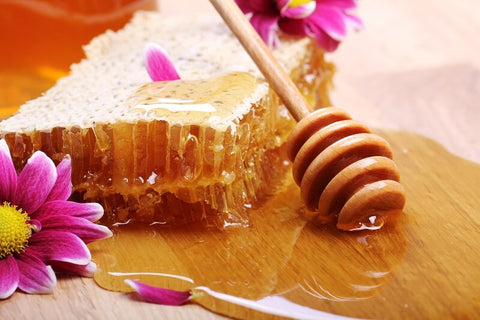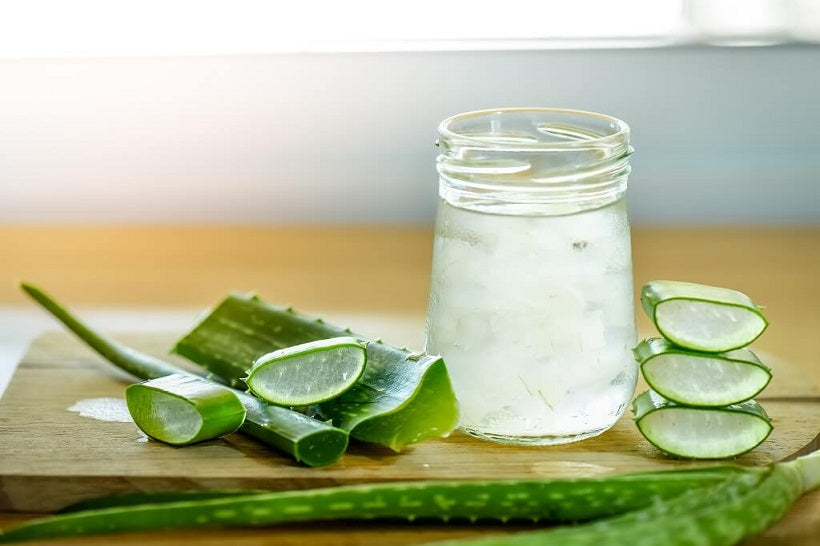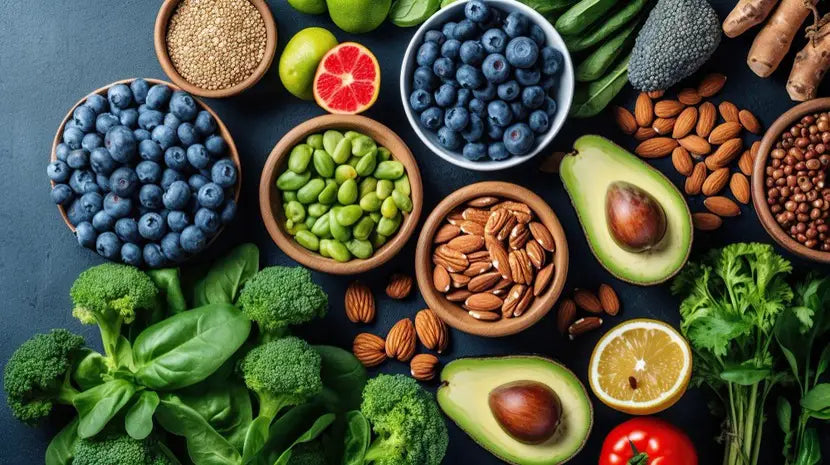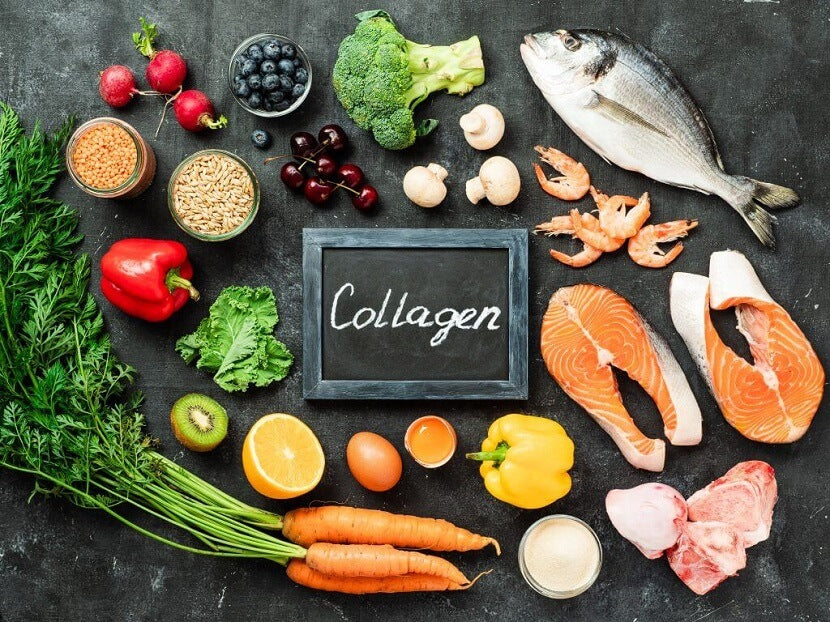As part of our skin healing programs, we’ve formulated naturopathic-approved DIY face masks for all skin types. This is a simple, yet effective mask for combating skin inflammation, redness, and dryness.
It’s a lovely rejuvenating DIY facemask that can be done 2 – 3 x per week for best results. Pretty soon you’ll see the difference as this all-natural formulation can make your skin feel fabulously smooth, vital and fresh.
- 3 tbsp fresh Aloe Vera gel
- 1 tsp Manuka honey
- 1 tbsp natural Greek yoghurt
- ½ tsp Jojoba oil
- 2 drops chamomile essential oil
Method:
- Combine all ingredients in a small bowl with a spoon.
- Gently massage the mixture evenly onto your face.
- Lay down and deep breathe for 10 - 15 minutes.
- Remove the mask with water and a clean face cloth.
- Any leftover face mask can be stored in the fridge for 3 days.
Check out our other DIY face masks here.
Why We Love These Ingredients
Aloe Vera Gel
Aloe vera is Mother Nature’s gift to us for skin and wound healing. Aloe vera can significantly reduce acne lesions and has been known throughout the ages for its potent wound-healing capabilities. Burnt skin? Aloe. Red skin? Aloe. Dry skin? Aloe! Yep it’s just that great.
Aloe vera gel is quite versatile and works as an astringent (tightens pores), deep-penetrating moisturiser, cleanser and antioxidant. The gelatinous parts of aloe vera have been used effectively to promote hydration and heal acne, infections, herpes, redness, skin inflammation, psoriasis, eczema, and blisters.
Aloe vera helps to detoxify the skin from pollution and may even prevent wrinkles due to its nourishing nutritional composition. If you have problematic skin, you must be looking at things just as much internally as externally. Nevertheless, aloe vera is an ideal herbal intervention to utilise daily for your skin healing and repair. Aloe gel is rich in collagen-building vitamins C and E which help mitigate scarring and pigment changes.

Manuka Honey
Manuka honey is produced by Apis mellifera honey bees feeding on the manuka tree (Leptospermum scoparium) in New Zealand. It’s clinically used and trialled for wound healing and infections. Honey is effective in anti-bacterial resistant conditions, especially dermatitis and psoriasis. Manuka honey has broad-spectrum antibacterial effects and is very soothing to the skin.
Manuka honey stimulates deep cleansing and is also loaded with antioxidants that are ideal for supporting skin barrier function. Research also suggests that Manuka honey promotes better re-epithelialization in wound healing than hydrofiber silver. If you have any wounds, burns, infections or irritation, Manuka honey combined with aloe vera is a very potent healing combination.
Natural Greek Yoghurt
Greek yoghurt is packed with probiotic bacteria, with one of the main probiotic strains being Bifidobacterium lactis. Greek yoghurt is a nutrient dense food source with high bioavailability of vitamins and minerals, particularly B-vitamins, zinc, calcium, phosphorus and potassium. The lactic acid in Greek yoghurt helps to exfoliate your skin, leaving it feeling smooth and fresh.
Greek yoghurt can help to reduce redness, puffiness, age spots and pigmentation without losing hydration or inducing irritation. It also contains beneficial lactobacillus paracasei shown to nourish dermal hydration and trans-epidermal water loss. Probiotic strains found in natural Greek yoghurt hinder the detrimental bacteria ratios often associated with acne rosacea and vulgaris and are ideal for reducing inflammation and improve skin immunity.

Jojoba Oil (Simmondsia chinensis)
Jojoba oil is extremely stable and packed with anti-inflammatory compounds. It’s ideal for nourishing the skin in inflamed, dry states. The high vitamin E content of jojoba oil is also perfect for repairing the skin barrier from wounds, dermatitis, wrinkles and acne. The interesting double-bond fat structure of jojoba oil is unique, helping to target and reduce damaging free-radicals that cause aging and inflammation.
Jojoba oil has been shown to have anti-bacterial, anti-fungal, anti-inflammatory and antioxidant properties, which is why it’s one of our favourites to use on the skin. Jojoba oil is gentle and acts as a deep cleanser to clear excessive sebum, comedones and blockages. You can also use the oil on your hair and nails for extra shine and nourishment!
Chamomile (Matricaria recutita)
Chamomile is an ancient medicinal plant particularly associated with skin and wound care. Chamomile essential oils are anti-inflammatory and known to be a tonic for hair follicles as well. It nourishes all skin types – inflamed, itchy, dry, or cracked – and is lovely for an extra natural radiance booster.
Matricaria recutita is also a mild astringent that helps clear and close large pores. It’s gentle antibacterial properties help to keep your skin microbiome balanced without negative side-effects, which makes for much faster wound healing. This herb has been used throughout the ages and for a very good reason – it’s gentle, potent and divinely nourishing to the skin.

Be Sure to Use this DIY Mask Regularly
This DIY face mask formula is ideal for all skin types, particularly sensitive skin. It’s utilising some of the earth’s most magnificent plants backed by science to nourish and support dermal integrity, antioxidant status, wound-healing, inflammation, scar reduction and anti-aging. If you’re looking for a gentle, versatile DIY mask – this is it! To further nourish skin from the inside out, be sure to check out our science-based Optimal Skin Guide where you receive guidance on superfoods, nutrients, lifestyle interventions and a 7-day optimal eating guide.
Afterward, you can revolutionize your relationship with food and embrace a lifestyle of radiant wellness. Our latest HAPPY HEALTHY YOU book features a curated collection of organic recipes that serve as your gateway to a world of holistic nourishment. 
REFERENCES
Ahuja A, Gupta J, and Gupta R. (2020). Miracles of Herbal Phytomedicines in Treatment of Skin Disorders: Natural Healthcare Perspective. Infectious Disorders - Drug Targets, Jun 22.
https://doi.org/10.2174/1871526520666200622142710
Al-Obaidi J.R. (2019) Contribution of Jojoba (Simmondsia chinensis) Products in Human Health. In: Ozturk M., Hakeem K. (eds) Plant and Human Health, Volume 2. Springer, Cham.
https://doi.org/10.1007/978-3-030-03344-6_12
Alvarez-Suarez JM, Gasparrini M, Forbes-Hernández TY, Mazzoni L, and,Giampieri F. (2014). The Composition and Biological Activity of Honey: A Focus on Manuka Honey. Foods, Sep; 3(3): 420–432.
https://dx.doi.org/10.3390%2Ffoods3030420
Kanlayavattanakul M and Lourith N. (2011). Therapeutic agents and herbs in topical application for acne treatment. International Journal of Cosmetic Science, Aug;33(4):289-97.
https://doi.org/10.1111/j.1468-2494.2011.00647.x
Karkala M and Bhushan B. (2014). Aloe vera: a wonder plant its history, cultivation and medicinal uses. Journal of Pharmacognosy and Phytochemistry, 2 (5): 85-88.
https://www.phytojournal.com/archives/2014/vol2issue5/PartB/19.1.pdf
Kober MM and Bowe WP. (2015). The effect of probiotics on immune regulation, acne, and photoaging. International Journal of Women’s Dermatology, Jun; 1(2): 85–89.
https://dx.doi.org/10.1016%2Fj.ijwd.2015.02.001
Liang et al. (2020). Aloe vera: A medicinal plant used in skin wound healing. Tissue Engineering, Nov 18.
https://doi.org/10.1089/ten.teb.2020.0236
Lin TK, Zhong L, and Santiago JL. (2017). Anti-Inflammatory and Skin Barrier Repair Effects of Topical Application of Some Plant Oils. International Journal of Molecular Sciences, Jan; 19(1): 70.
https://dx.doi.org/10.3390%2Fijms19010070
McLoone PW, Warnock M, and Fyfe L. (2016). Honey: A realistic antimicrobial for disorders of the skin. Journal of Microbiology, Immunology and Infection, Apr;49(2):161-7.
https://doi.org/10.1016/j.jmii.2015.01.009
Roobab et al. (2020). Sources, formulations, advanced delivery and health benefits of probiotics. Current Opinion in Food Science, Apr;32: 17-28.
https://doi.org/10.1016/j.cofs.2020.01.003









Leave a comment
This site is protected by hCaptcha and the hCaptcha Privacy Policy and Terms of Service apply.